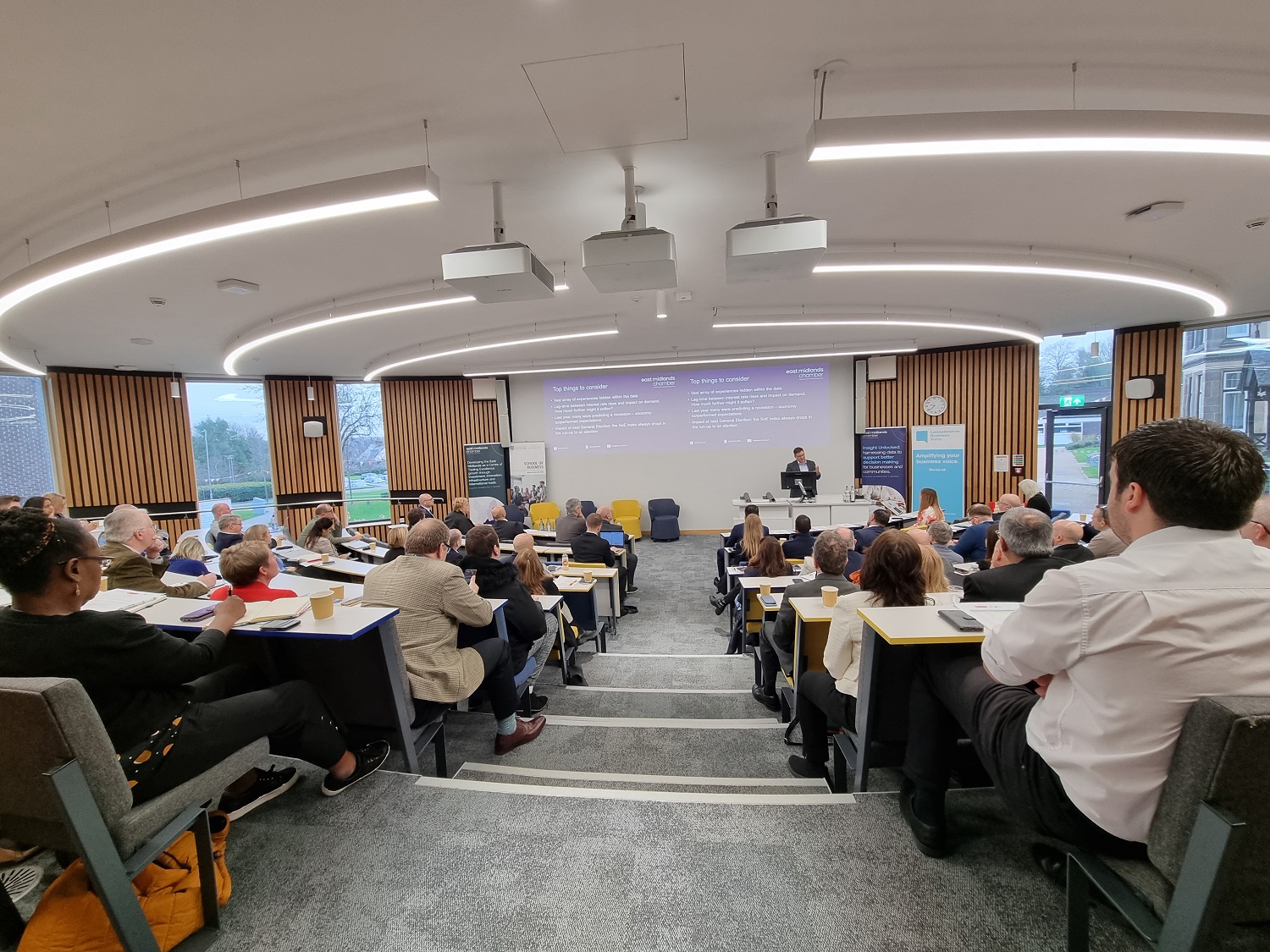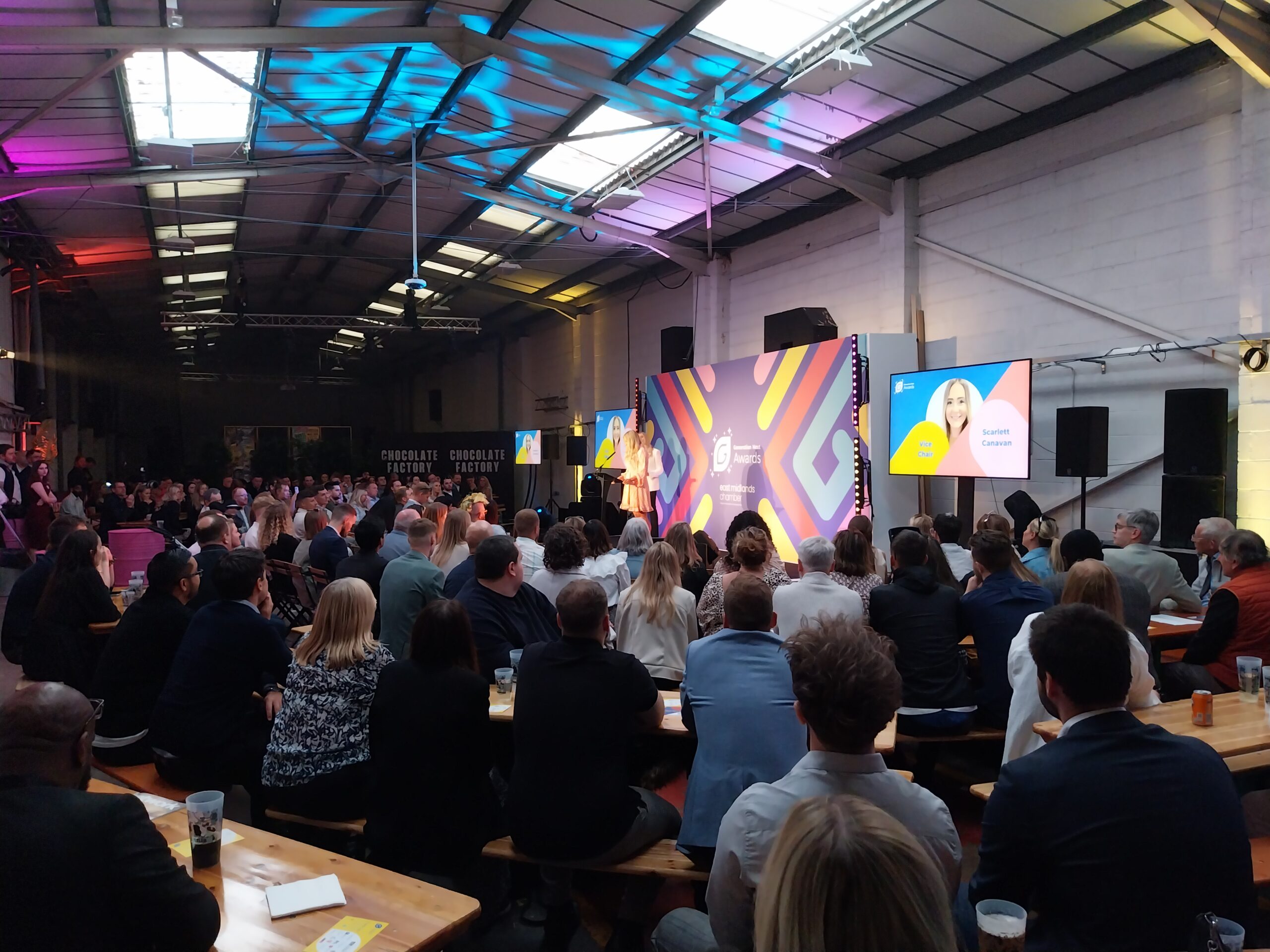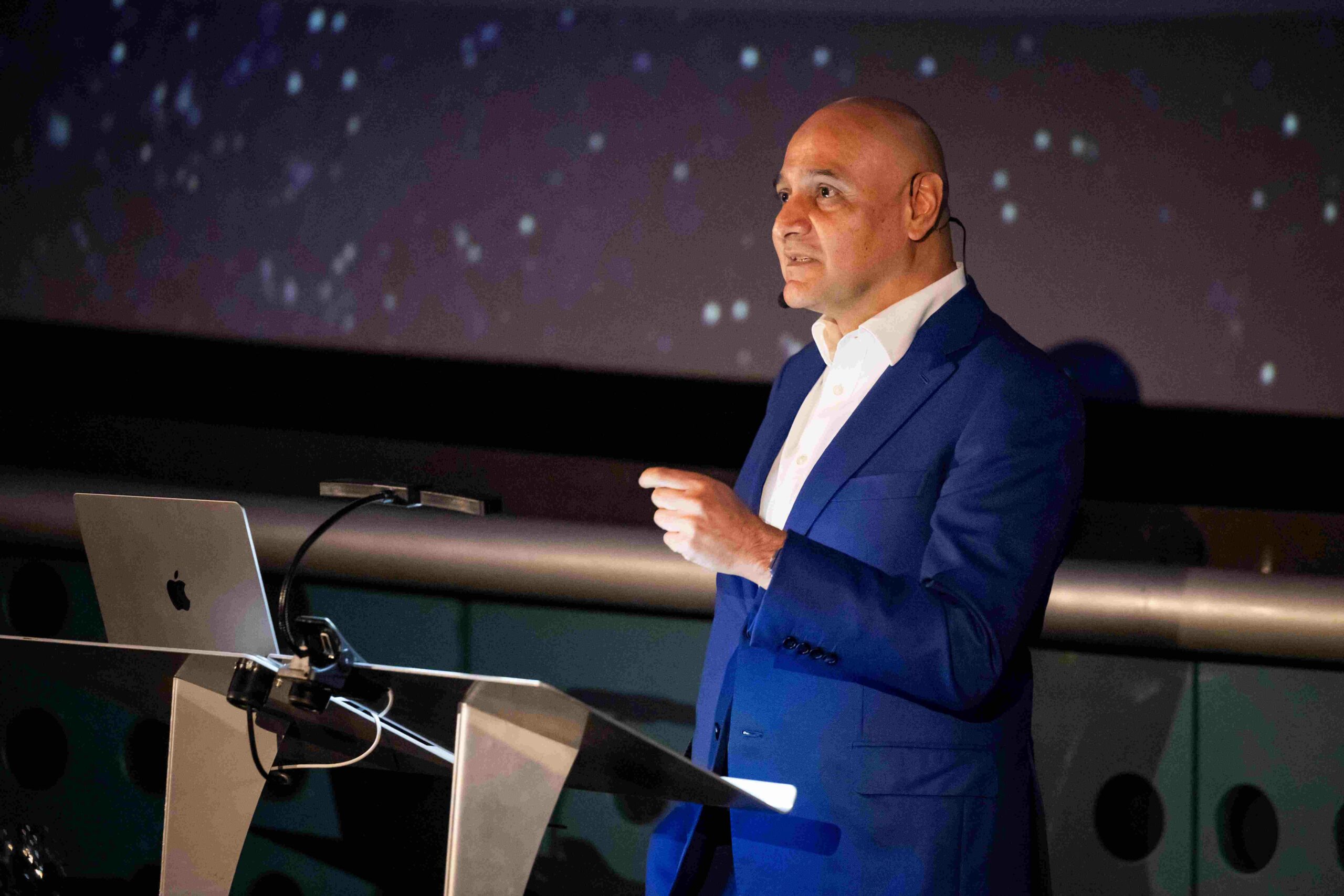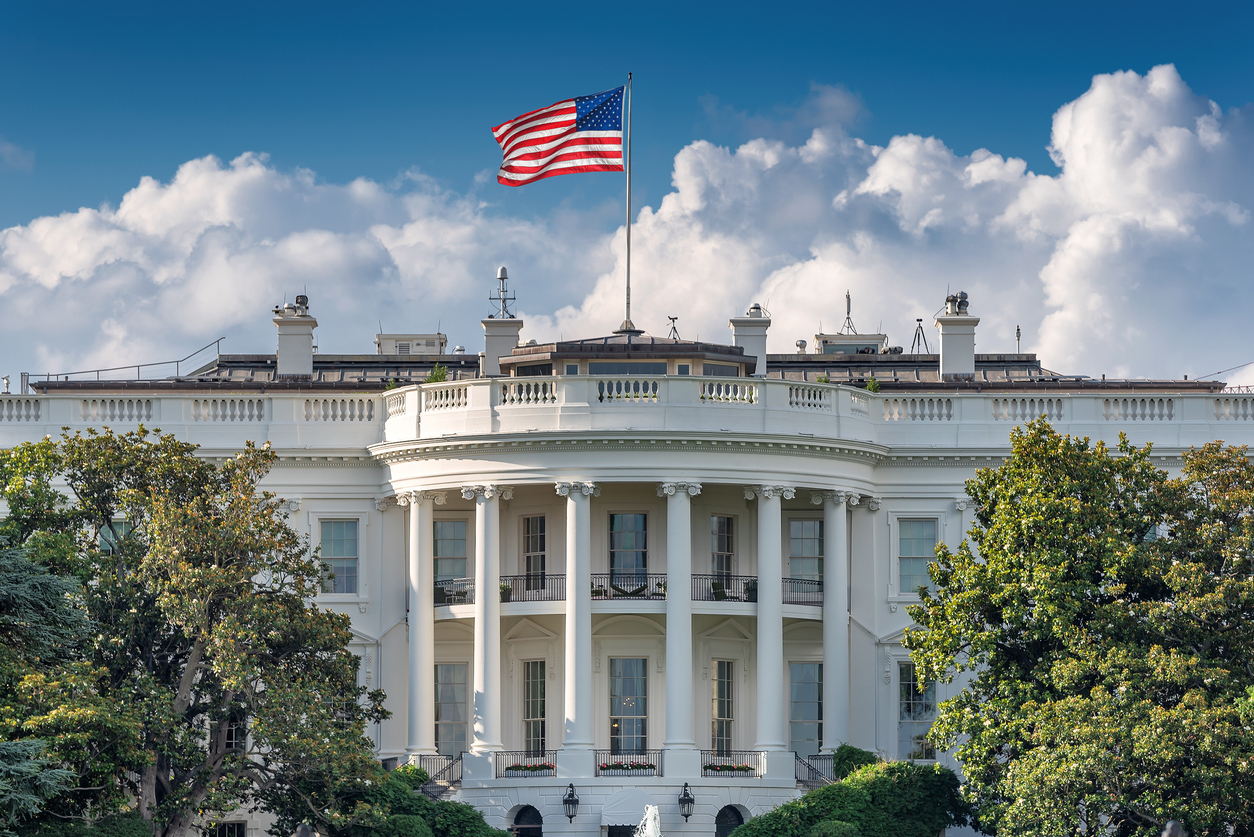The uncertainty surrounding when a General Election takes place must not get in the way of businesses’ ability to drive forward the growth that will bring down inflation and boost wages.
This was the view of business leaders speaking at East Midlands Chamber’s Annual State of the Economy Conference, held at the University of Leicester School of Business yesterday (Thursday 14 December).
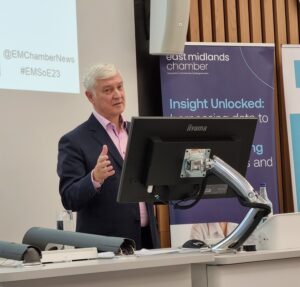
On the day the Bank of England kept the base rate at 5.25%, the highest point in 15 years, and 24 hours after the latest economic data showed the UK’s GDP shrank more than expected by 0.3% in October, speakers made the case for cross-party consensus on key economic issues such as skills, productivity, and research and development – which they said are crucial to raising business investment from its current low bar.
Among the business leaders and economists were Institute of Directors director-general Jonathan Geldart, Barclays global head of transactional FX sales Sat Khuntia, PwC East Midlands partner Alex Hudson, Freeths Leicester managing partner Lisa Gilligan, Future Life Wealth Management founder and divisional director Jillian Thomas, and Mukesh Bulsara, partner at business advisory services firm Coadax and vice-chair of Leicestershire Business Voice.
Data from the Chamber’s latest Quarterly Economic Survey, run in partnership with the University of Leicester School of Business, was presented to give a snapshot of the past year. It showed how after a general improvement in activity and sentiment throughout the first half of 2023 there has been an overall slowdown towards the end of this year.
Historical trends show activity often slows ahead of a General Election
East Midlands Chamber director of policy and insight Chris Hobson said: “Our Quarterly Economic Survey results for 2023 can be viewed as a game of two halves, with the recent slowdown underpinned by a decrease in advanced orders – both at home and overseas – along with a weakening labour market, flat investment intentions and a decline in cashflow performance.
“Driving this has been, firstly, fiscal pressures from 14 consecutive increases in the base rate by the Bank of England. It may be the lag time between rate hikes and subdued consumer demand has now passed and we are experiencing the full impact of that prolonged, proverbial belt-tightening.
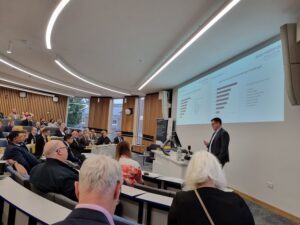
“Away from this, we’re also experiencing an unpredictable political environment, with multiple ‘resets’ as the country gears up for a General Election. This has meant an increase in policy announcements, arguably with more of an eye on positioning as opposed to meaningful growth strategies for UK plc.
“Looking at historical trends via our State of the Economy Index, it’s not unusual to see things slow down ahead of an election, but the concern is that continued uncertainty about when this might take place could act to lengthen the duration of this for businesses.
“Sentiment is an incredibly powerful – and often underestimated – factor in economic activity. As businesses seek surety over the environment into which they’ll be investing over the coming 12 months, it’s incumbent on all parties to ensure we don’t allow the nature of our political cycles to mean we are found wanting.
“But one note of confidence – this time 12 months ago, many were predicting a recession in 2023 that never materialised. And when talking to individual businesses, the big picture trends we see are hiding many, many positive stories of growth and success.”
East Midlands Chamber Quarterly Economic Survey Q4 2023 findings
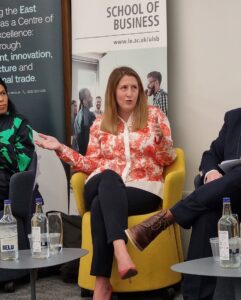
Key findings from the Quarterly Economic Survey Q4 2023 for the East Midlands, which was completed by 370 organisations between 6 and 30 November 2023, included:
- UK and overseas sales have each remained steady throughout the year, increasing by a net 2% between the third and fourth quarters, but there were declines in advanced orders for a net 9% and 10% for UK and overseas respectively
- Recruitment has slowed with a net 8% drop in businesses that added to their headcount in the prior three months compared to the previous quarter, although there was a net 1% rise in firms expecting to increase their workforce in the next three months
- Many employers continue to face challenges with filling job vacancies – 55% of organisations attempted to recruit and, of those, more than seven in 10 (72%) experienced problems in finding suitable staff. Skilled manual and technical, and professional and managerial roles were the most difficult to fill.
- After easing throughout the year, price rises are back on the agenda. In Q1, 54% of businesses had expected to increase their prices due to cost pressures from energy, raw materials, people and fuel. This fell to 30% in Q3 before rising again to 40% in the final quarter of the year, with increased labour costs the main driver
- A net 7% of firms reported cashflow was down in Q4, a 6% rise from the previous quarter
- There was no difference in intentions to invest in plant and equipment between the third and fourth quarters, but investment intentions for training increased by 5%. Both indicators have remained very low throughout 2023, with the total proportion of firms intending to increase their investment never climbing above 20%
- Business confidence shows a mixed picture, with confidence in profitability prospects down by 2% compared to the previous quarter but up by 4% for turnover expectations.
East Midlands Chamber’s Quarterly Economic Survey reports are available to read here.
